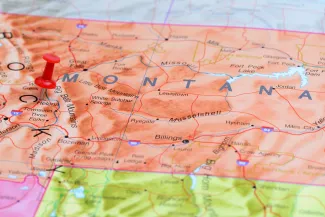
Montana teachers oppose special-ed voucher program
Click play to listen to this article.
(Big Sky Connection) The union that represents Montana teachers opposes a move to legalize private school vouchers in the state.
Educational Savings Accounts, or ESAs, are growing in popularity around the country. ESAs allow people to use state money to pay private school tuition.
House Bill 393, which Montana lawmakers passed last year, is slightly different than in other states - in that the money would be limited to tuition vouchers for special education students.
Montana Federation of Public Employees' President Amanda Curtis said using state money for private school leaves students without the protection of the Montana Constitution.

"This voucher system literally takes money on a 'per-kid' basis," said Curtis, "which de-funds the public education system and denies students their constitutional right to access a quality public system."
Supporters of the measure say students with special needs often do better at home or in private schools than in public schools. The Montana Legislature will next convene in 2025.
Thirteen states have passed some version of ESA program, but Curtis contended the movement will ultimately fail on the national level.
She said she thinks Montana will follow suit, because the state's decisionmakers have jumped on a trend and been influenced by outside groups.
"I am constantly concerned about some politicians in Montana," said Curtis, "allowing our policy decisions to be influenced by the national political rhetoric."
In most states that have passed them, ESAs are projected to cost the state more than double what the legislatures budgeted for them, effectively taking that money directly out of public school budgets.
Curtis said she has vowed to challenge Montana HB 393 in court.















